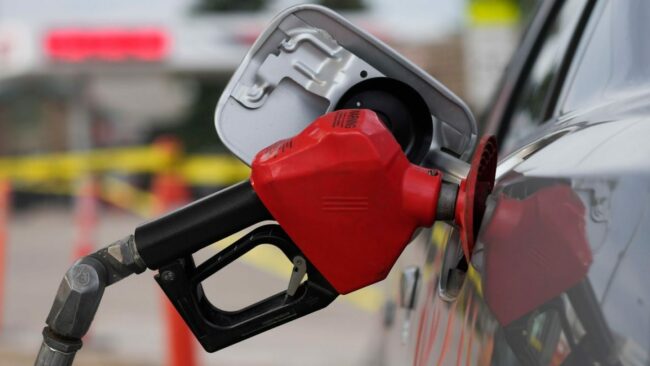Low fuel prices offer relief to citizens and affordable fuel often translates to lower living costs, easing the financial burden on households.
While many African countries struggle with rising fuel costs, a few benefit from specific conditions that help keep prices down.
These factors often include an abundance of natural resources, given the fact that African countries rich in oil reserves can leverage their resources to reduce fuel prices domestically.
Government policies, also contribute via measures such as subsidies or price caps that are often implemented to prevent social unrest and stabilize the economy.
These prices are sourced from GlobalPetrolPrices and reflect the cost of diesel fuel in each country.
Libya sits top with $0.031 (N47.335) per litre, while Nigeria are 7th with $0.768 (N1184.830) per litre.
Countries with advanced refining infrastructure can process crude oil locally, cutting costs associated with importing refined products.
The average price of petrol around the world came in at 1.24 U.S. Dollars per litre for December, slightly lower than the 1.25 U.S. per litre reported last month.
Below are the ten African countries where fuel remains most affordable as of 16th of December 2024.
1. Libya – $0.031 (N47.335) per litre
Libya is one of the largest oil producers in Africa, with significant domestic oil reserves. The country is heavily subsidised by its government, which helps maintain low fuel prices for consumers.
2. Angola – $0.329 (N507.160) per litre
Angola is Africa’s second-largest oil producer. Despite being an oil-rich country, Angola’s government heavily subsidizes fuel, contributing to its low prices. However, these subsidies also strain the national budget. Angola’s economy is heavily dependent on oil exports, and fluctuations in global oil prices can have a significant impact. The country also faces challenges like inflation and a lack of economic diversification.
3. Egypt – $0.335 (N516.190) per litre
Egypt’s fuel prices are subsidized by the government, though there have been recent efforts to reduce these subsidies in an attempt to improve the country’s fiscal position. Still, fuel prices remain relatively low compared to many African nations.
4.Algeria – $0.343 (N529.710) per litre
Algeria is a major oil and gas producer in Africa. The government heavily subsidizes fuel prices to ensure affordability for its citizens, making fuel one of the cheapest in the region.
5. Sudan – $0.700 (N1079.699) per litre
Sudan has large oil reserves, and the government traditionally subsidises fuel prices to ensure accessibility. However, the country’s fuel market faces challenges due to economic sanctions, political instability, and fluctuating oil production levels. Sudan’s economic struggles, including hyperinflation and international sanctions, impact its ability to maintain fuel subsidies. The country has also faced challenges in sustaining oil production due to the loss of oil-producing areas following the secession of South Sudan.
6. Ethiopia – $0.718 (N1108.167) per litre
Ethiopia’s fuel prices are kept relatively low by government subsidies, though the country imports a significant portion of its oil. Ethiopia’s government seeks to support affordable energy prices for its rapidly growing population.
7. Nigeria – $0.768 (N1184.830) per litre
Nigeria, Africa’s largest oil producer, has significant reserves and oil exports. The government historically subsidizes fuel prices to ensure affordability. However, these subsidies have been a subject of economic debate, particularly due to their impact on the national budget.
8. Tunisia – $0.796 (N1227.760) per litre
Tunisia’s government subsidizes fuel, keeping prices low for consumers. Tunisia imports much of its oil, but subsidies help offset the costs, making fuel more affordable than in many neighbouring countries.
9. Liberia – $0.857 (N1322.414) per litre
Liberia benefits from fuel imports at relatively low international costs and some government subsidies. The fuel sector is largely controlled by private companies, but prices remain among the lowest in the region due to minimal taxes and import duties.
10. Gabon – $0.952 (N1468.714) per litre
Gabon is an oil-producing country, with significant petroleum exports. The government provides subsidies to keep fuel prices lower than many other countries in Africa, helping to support the local economy.
Many factors influence the price of fuel;
Oil Production and Subsidies: Many of these countries are significant oil producers, and their governments subsidize fuel prices to reduce the economic burden on their citizens. This is particularly true for countries like Libya, Algeria, and Angola.
Economic Impact: While these low prices benefit consumers, they often come at the cost of substantial government subsidies, which can strain national budgets and contribute to economic instability if oil prices fluctuate.
Challenges and Vulnerabilities: Countries without large domestic oil production (like Ethiopia and Liberia) are vulnerable to global oil price changes. Political instability, weak infrastructure, and lack of diversification in the economy are common challenges facing many African countries with low fuel prices.
These low fuel prices often reflect a balance between government subsidies and oil market realities. However, global market dynamics, domestic production levels, and political factors can all influence fuel price fluctuations.
ALSO READ FROM NIGERIAN TRIBUNE
Top 10 countries with cheaper petrol prices in December, 2024
